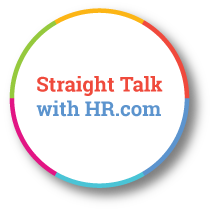Employee Data Privacy And Safety: HR Policies Need To ‘Proactively’ Align With Legal Requirements
Exclusive interview with Shelby Lepage, Human Resources Manager, Case IQ
Posted on 12-03-2024, Read Time: 6 Min
Share:


 |
“Case IQ operates on the policy of least privilege, which is a security concept where personnel are granted only the minimum access necessary to perform their job duties, reducing the risk of unauthorized data exposure or misuse,” said Shelby Lepage, Human Resources Manager, Case IQ. |
In an exclusive interview with HR.com, Lepage discusses the complex legal and compliance challenges organizations face when implementing health and safety protocols for remote and hybrid workforces, strategies for aligning HR policies with evolving regulations, and the measures necessary to safeguard employee privacy while fostering trust and transparency.
Excerpts from the interview:
Q: What are the key legal and compliance challenges you face when implementing health and safety protocols, especially in a remote or hybrid workforce? How do you ensure HR stays compliant?
Lepage: One of the biggest challenges is navigating the differences in labor laws across regions or countries. These laws can vary widely, so employers need to address those variations to stay compliant wherever their employees are working.Data privacy regulations, like the General Data Protection Regulation (GDPR) and the Health Insurance Portability and Accountability Act (HIPAA), make things even trickier, especially when sensitive health data is involved in workplace safety measures.
On top of that, applying safety protocols, like the Occupational Safety and Health Administration (OSHA), consistently in hybrid or remote setups can be tough. It calls for customized strategies that consider both the unique challenges of different work environments and employees' individual circumstances.
HR policies need to align with legal requirements, and that starts with being proactive. Regular compliance audits and working closely with legal and industry experts help us stay on top of evolving regulations. This approach not only protects employee welfare but also supports the organization's integrity and smooth operations.
Q: What steps do you take to safeguard employee privacy when managing sensitive health-related data within HR systems?
Lepage: We use tools like end-to-end encryption for data storage and transmission, as well as role-based access controls to make sure only authorized personnel can access sensitive information. We also have detailed data governance frameworks to stay compliant and manage data responsibly. Regular cybersecurity audits and vulnerability assessments help us identify and address potential risks.On top of that, CaseIQ operates on the policy of least privilege, which is a security concept where personnel are granted only the minimum access necessary to perform their job duties, reducing the risk of unauthorized data exposure or misuse.
Q: How can HR managers effectively communicate privacy and safety policies to employees while ensuring full compliance with applicable laws?
Lepage: HR managers can effectively communicate privacy and safety policies by keeping the language simple and easy to understand while sharing the information through multiple channels, such as training sessions, digital platforms, and employee handbooks. Clearly explaining how data is used, stored, and protected reassures employees about their privacy rights and builds trust.Regular updates on compliance measures and policy changes keep everyone informed and ensure employees understand their rights and responsibilities under the law. By engaging employees through feedback channels, HR can foster better understanding and alignment with organizational goals, creating a more transparent and collaborative environment.
Q: What measures do you have in place to ensure that employees feel safe and confident when sharing health-related information with HR without compromising their privacy?
Lepage: We focus on making sure employees feel safe sharing any necessary health-related information by prioritizing confidentiality and trust. We have put strong data protection measures in place and communicate our privacy policies clearly so everyone knows their information is secure.Also, our non-retaliation policy reassures them that they will be supported, not penalized, for speaking up on any topic that concerns them, including health-related concerns. In addition, we provide regular training on handling sensitive information with care and empathy. This all comes together to create an environment where employees feel confident and comfortable discussing important issues.
Error: No such template "/CustomCode/topleader/category"!
